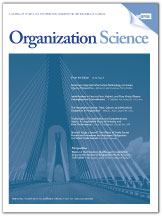Academic articles
Practitioner articles
Working papers
Books
Book chapters
Case studies
Other publications
Subject(s)
Economics, politics and business environment; Finance, accounting and corporate governance
Keyword(s)
German banking sector, low interest period, profitability, hidden and open reserves
JEL Code(s)
G21, G28
Pages
27
Subject(s)
Product and operations management
Keyword(s)
Pricing, choice behavior, rational inattention, information acquisition, signaling game
View all ESMT Working Papers in the ESMT Working Paper Series here. ESMT Working Papers are also available via RePEc, EconStor, and the German National Library (DNB).
Pages
41
ISSN (Print)
1866–3494
Subject(s)
Information technology and systems; Technology, R&D management
Keyword(s)
Bitstream encryption vulnerability, FPGA security, bitstream fault injection, automated key recovery, AES
Volume
PP
Journal Pages
1–13
Subject(s)
Ethics and social responsibility
Keyword(s)
Business models, leading change, sustainability initiatives, sustainability strategy
Volume
58
Journal Pages
71–78
Subject(s)
Human resources management/organizational behavior; Management sciences, decision sciences and quantitative methods; Strategy and general management
Keyword(s)
Attributional style, charismatic leadership, shared vision
As charismatic leaders are more inclined to have personality traits predisposing them to unconventional, extreme and sometimes self- destructive behavior, there is a question of how those behaviors affect the followers, namely their acceptance of the leader and their willingness to share the leader’s vision. This study explores the interface between potential followers’ attribution of causes of positive and negative behavior of charismatic leaders, and the connection between the leader and followers through shared vision. The study proposes a measure to explore how the followers make attributions of positive or negative events for charismatic and non-charismatic leaders, and the extent to which they are likely to share the vision of a charismatic or a non-charismatic leader using a sample of real business executives. The study finds that the respondents are significantly more likely to share the vision of the charismatic leader, particularly following negative events involving the latter, and are significantly more likely to view negative behavior as less important, more acceptable and more caused by personal reasons. Charismatic leaders may be better able to ‘weather the storm’ when negative events happen compared to the non-charismatic ones. The paper concludes with a suggestion for a new maintenance model of charismatic leadership.
Volume
2017
ISSN (Online)
2151-6561
ISSN (Print)
0065-0668
Subject(s)
Marketing; Product and operations management
Keyword(s)
Freemium, pricing, digitization, field experimentation
JEL Code(s)
M30, M20
Volume
2017
Journal Pages
11533
ISSN (Online)
2151-6561
ISSN (Print)
0065-0668
Subject(s)
Human resources management/organizational behavior
Keyword(s)
Brokerage process, unembedded interactions, tertius gaudens and tertius iungens, relational event model
Organizational network research has demonstrated that multiple benefits accrue to people occupying brokerage positions. However, the extant literature offers scant evidence of the process postulated to drive such benefits (information brokerage) and therefore leaves unaddressed the question of how brokers broker. We address this gap by examining the information-brokerage interactions in which actors engage. We argue that the information-brokerage strategies of brokers differ in three critical ways from those of actors embedded in denser network positions. First, brokers more often broker information via short-term interactions with colleagues outside their network of long-term relationships, a process we label “unembedded brokerage.” Second, when they engage in unembedded brokerage, brokers are more likely than are actors in dense network positions to intermediate the flow of information between the brokered parties, consistent with a tertius gaudens strategy. Conversely, and third, when they broker information via their network of long-term ties (embedded brokerage), brokers are more likely than are densely connected actors to facilitate a direct information exchange between the brokered parties, consistent with a tertius iungens strategy. Using a relational event model, we find support for our arguments in an empirical analysis of email communications among employees in a medium-sized, knowledge-intensive organization, as well as in a replication study. The theory and evidence we present advance a novel, temporal perspective on how brokers broker, which reconciles structural and process views of network brokerage. Our findings substantiate the notion of brokers as a dynamic force driving change in organizational networks, and they help to integrate within a unitary explanatory framework tertius iungens and tertius gaudens views of brokerage.
© 2016, INFORMS
Volume
27
Journal Pages
1343–1360
Subject(s)
Strategy and general management; Technology, R&D management
Keyword(s)
Brokerage, networks, status
ISSN (Online)
2151-6561
ISSN (Print)
0065-0668
Subject(s)
Strategy and general management; Technology, R&D management
Keyword(s)
Inventor mobility, alliance formation, interfirm collaboration, technological capabilities, pharmaceuticals
Volume
2017
ISSN (Online)
2151-6561
ISSN (Print)
0065-0668
Subject(s)
Economics, politics and business environment; Entrepreneurship
Keyword(s)
Decision-making criteria, equity, crowdfunding, evaluability
ISSN (Online)
2151-6561
ISSN (Print)
0065-0668

